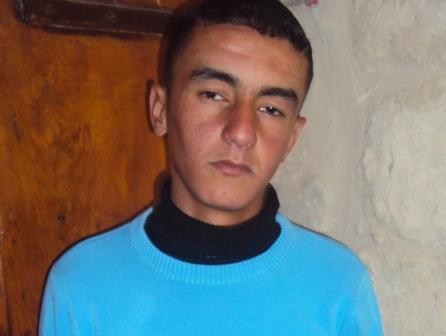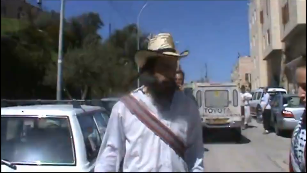Tag: Kiryat Arba settlement
-
Ultimate goal of Israeli policies in Hebron: ethnic cleansing
By Markus Fitzgerald 28 July 2012 | International Solidarity Movement Just below the illegal settlement of Kiryat Arba, situated on the the eastern outskirts of Al Khalil (Hebron) is the Palestinian area of ar-Ras. A quick online search of the Israeli settlement of Kiryat Arba provides general knowledge on the founding history and how it…
-
Voices from the Occupation: Izat J. – settler/soldier violence/detention
11 April 2012 | Defence for Children International Name: Izat J. Date of Incident: 10 March 2012 Age: 16 Location: Hebron, occupied West Bank Nature of Incident: Settler/soldier violence/detention On 10 March 2012, a 16-year-old boy from Hebron is attacked by an Israeli border policeman and then detained at Kiryat Arba’s police station after his…
-
Caught on Tape: Drunk settlers in Al Khalil assault two international women; Israeli military admits special relationship with violent settlers
11 March 2012 | International Solidarity Movement, West Bank On March 9 2012, 6 volunteers of International Solidarity Movement were walking down Shuhada Street near Checkpoint 55 at approximately 11 AM, when drunk settlers attacked the group and injured one international volunteer. About 5 drunk male settlers began to scream at and surround the internationals,…


